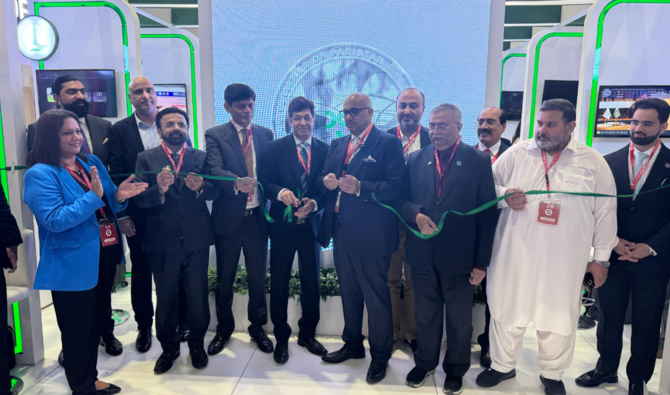ISLAMABAD: Pakistan’s government is working on a new education policy to impart technical skills to one million youth annually to export trained human resource to Saudi Arabia and other Gulf countries, an official said on Friday.
The cash-strapped South Asian nation of 241 million has been working on a holistic national education policy to cover technical training for the youth by enrolling over 2.5 million out-of-school children.
The Special Investment Facilitation Council (SIFC), a federal body led by Prime Minister Shehbaz Sharif to attract investment from foreign and domestic sources, has given specific targets to the education ministry to finalize a comprehensive policy to improve the education sector.
“This new policy aims to impart vocational training to at least one million youth per annum to export skilled workforce to Saudi Arabia and other Gulf countries,” Rana Mujtaba, a spokesperson for the Pakistani ministry of education and professional training, told Arab News.
“It will be rolled out in May.”
There are around 9 million overseas Pakistanis living and working in different countries, including 2.8 million in Saudi Arabia, who remit around $30 billion back home annually to support the country’s fragile economy.
“Majority of our overseas workforce is unskilled labor. Therefore, the government is now focusing on enhancing vocational capacity of the youth,” Mujtaba said.
In the National Education Policy 2017-2025, Pakistan aimed to raise its literacy rate from the existing 60 percent to 90 percent by 2025, narrow down the gender gaps, reduce rural and urban imbalance, improve quality of education, promote technical and vocational education with skill development programs, and ensure good governance. But all this has yet to be achieved.
Mujtaba said Pakistan’s vocational training institutes already had a “strong affiliation” with Saudi Arabia, where all training certificates were accepted.
“The SIFC that is chaired by the PM has given a general direction to the ministry to work on a new education policy to improve the sector’s performance,” he said.
The spokesperson dispelled the notion that the education ministry was working on the new education policy without taking provincial governments on-board, since education has primarily been a provincial subject in the South Asian country.
“The federal government is in fact supporting the provinces in improving the education sector. All provincial ministers and education secretaries are on-board as the federal ministry has sought inputs from all of them,” he said.
“This will be a holistic policy that will also address the issue of out-of-school children, improving the higher education’s standards, domestic and foreign scholarships for the students.”
Educationists and public policy experts said the government had already devised numerous policies and produced documents to improve the education sector, but it would lack in implementation of these plans.
“The silver lining in the new policy is that the government is for the first time focusing on out-of-school children, but there needs to be an effective mechanism in place with clear timelines to address this issue,” Taimur Bandey, an educationist, told Arab News.
“The government needs to allocate its resources for teachers training and upgrade libraries and laboratories in the institutions to improve the education standards.”
















